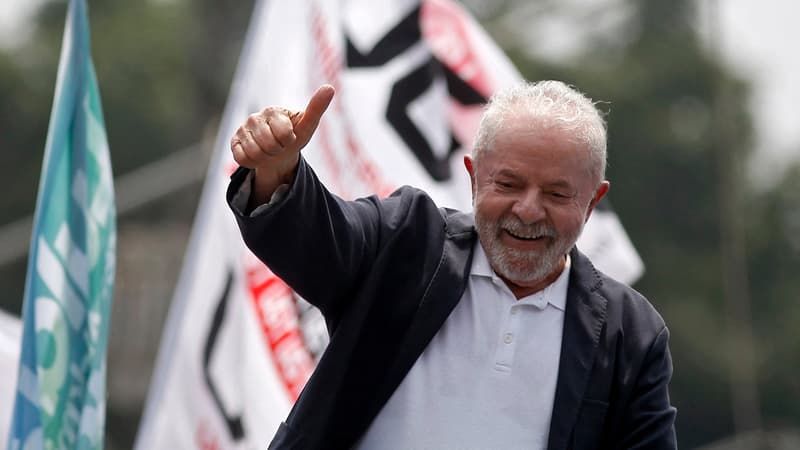“Brazil has returned,” Lula repeated several times after Sunday’s elections that propelled him back to the head of the country this Sunday, after more than ten years of absence. The leftist leader won 50.9% of the vote in the second round, compared to 49.1% for far-right President Jair Bolsonaro. And for this third term, Luiz Inacio Lula da Silva will have to deal with an uncertain economic situation.
Among the main challenges that await the new Head of State is the control of inflation. Up from 10% in August, its 12-month indicator fell to 7% the following month. But it remains a major concern in the country, especially for the poorest.
Social reforms against inflation and poverty
To deal with its consequences, Lula plans first to readjust the minimum wage to this price increase. The social component of his program also includes an income tax exemption for the poorest and increased aid under the “Bolsa Familia” (Family Allowance in French). Aimed at the most vulnerable populations, this program was developed during his first two terms, in 2003 and 2010.
Lula also promised to strengthen social protection, in particular taking up the reform of the labor code carried out in 2017.
An attraction to restore
After years of isolation, the leader also wants to restore Brazil’s international influence. To do this, he wants to sign new international agreements and thus be attractive to foreign investors again. Even before the transfer of power, the septuagenarian should travel abroad to send a strong message.
As for the Minister of the Economy who will rely on him to carry out his economic program, Lula has not yet given a name. He only indicated that whoever he chooses will be able to think about both fiscal and social responsibility.
A liberal guarantee to calm the markets?
The name of the new vice president Geraldo Alckmin is, however, pronounced by many experts. Liberal and right-wing conservative, he is also Lula’s former opponent in the 2006 presidential elections. reassure the markets at the dawn of this new mandate.
Lula can boast of having managed to revive the Brazilian economy in the past. During his first terms in office, Brazil’s first working-class head of state had initially pursued an orthodox economic policy. It was only gradually that he applied his social reforms and implemented his program to support growth. As a result, not only has the country returned to growth, at more than 5% per year since 2007, but 30 million Brazilians have also been lifted out of poverty.
A challenge that promises to be more complicated to reproduce today. While the commodity boom helped fuel growth in the 2000s, there are more hurdles ahead for this new mandate. Beyond the inflation, international isolation and rising US interest rates that are weighing down the Brazilian economy, the right-wing majority in Parliament could still complicate Lula’s task.
Source: BFM TV


